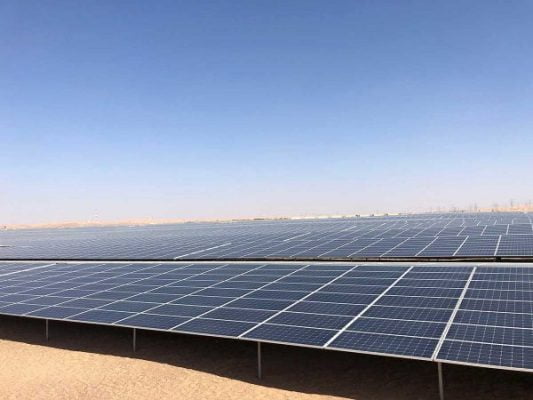Zimbabwe’s mining industry is rushing to establish solar plants for their power requirements, with plans to put the excess on the national grid as electricity problems hamper production across the economy.
Despite making concessions such as paying for power in foreign currency and securing dedicated lines from utility firm ZESA, miners are still struggling with electricity like the rest of the country, going for hours without power and having to incur huge costs in fuel for generators.
This eats into their margins. Business Times heard this week that at least four major mines, including Caledonia Mining Corporation’s Zimbabwean unit, Blanket Mine, and the platinum producer Zimplats are at advanced stages of establishing solar power plants.
The successful completion of the projects is among steps towards dealing with the electricity challenges now threatening industry. The development will also result in the country becoming a net exporter of electricity and ending overreliance on hydro power from the Kariba dam. Successive droughts in Kariba’s catchment area along the Zambezi River have caused problems for Zimbabwe despite ongoing efforts to expand capacity.
The country also has thermal plants, the major ones being in Hwange, but production is hampered by antiquated equipment. Currently, Zimbabwe relies on expensive imports and has set up a diesel generation plant at Dema which, sadly, has become a white elephant. Hundreds of independent power producer licence holders are yet to move, forcing Energy Minister Fortune Chasi to intervene by way of cancelling licenses of those who have failed to show cause.
A mega hydro power project of 2400MW capacity at Batoka Gorge to be shared between Zimbabwe and Zambia could turn Zimbabwe’s fortunes and see the country exporting, but the project is no low hanging fruit as it costs billions and could take at least five years to produce the first kilowatt-hour.
Caledonia Mining’s chief financial officer Mark Learmonth confirmed plans to put up a solar plant at Blanket Mine, saying it was at an advanced stages, having tendered for advisory services. Learmonth said the solar project would be implemented in three stages, two of which would generate power at a cost of US$8m. The plants will be 6.5MW each based on a tender document seen by Business Times.
“The first stage [will] generate enough power to meet Blanket Mine’s requirements, then we move on to the second stage,” Learmonth said in a telephone interview. The solar plant will be situated on 40 hectares near the mine, which itself is situated in the Gwanda area. At the second phase, the power will be enough to meet Blanket Mine’s demand at peak.
“The surplus will be put on the national grid. Learmonth said the company was currently in negotiations with Zesa and the Ministry of Energy to conclude agreements to either bank or put electricity on the national grid under favourable terms. Contracts for the project are expected to be issued in February 2020.
“Negotiations are going on smoothly and we are satisfied with the commitment and speed at which progress is being made,” Learmonth said, adding that the company expected a licence to produce power by year end.
Stage One works are expected to start next year, once funding is secured while stage two is subject to approvals of favourable terms by Zesa. The third stage is not an immediate priority and depends on the success of the two first stages. Learmonth said funding could be sourced globally from pro-green project funders, but Zimbabwe’s high-risk profile could be a challenge. Other options are to get debt on the international market or locally.
The last option is to give up a portion of equity to secure the funding, but indications are that shareholders have no such interest in the absence of major guarantees along the way. On its part, Zimplats, Zimbabwe’s largest platinum producer and largest investor after independence, could not be drawn to shed more light on its own project.
The company however confirmed it was considering solar energy as a solution to its power crisis. Company spokesperson Busi Chindove said the security of power supply was a critical component of Zimplats business operations.
“To this end, we are in constant dialogue with our current key power service providers and potential future power service providers in an effort to ensureaffordable, uninterrupted power supply to our operations and support the government’s thrust on economic turnaround,” she said in emailed responses_Business Times
.png)




